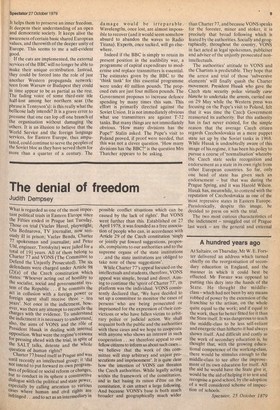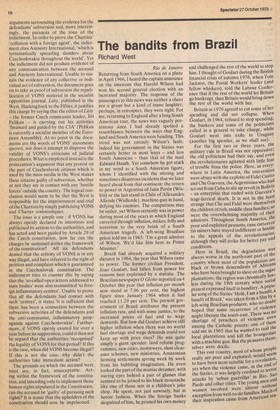A hundred years ago
At Saltaire, on Thursday, Mr W. E. Forster delivered an address which turned chiefly on the reorganisation of secondary education in England, and the manner in which it could best be effected. Mr Forster was opposed to putting this duty into the hands of the State. He thought the middleclass — which had not been by any means robbed of power by the extension of the franchise to the artisan, on the whole quite equal to the work; and if equal to the work, then far better fitted for it than the State itself. It was dangerous to teach the middle-class to be less self-reliant and energetic than hitherto it had always shown itself. And difficult and costly as the work of secondary education is, he thought that, with the growing educational competence of the working-class, there would be stimulus enough to the middle-class to see after the improvement of its own education for itself. All the aid he would have the State give it, would be the aid of helping it to test and recognise a good school, by the adoption of a well considered scheme of inspec tion of schools.
Spectator, 25 October 1879 arguments surrounding the evidence for the defendants' subversion and, more interestingly, the paranoia of the tone of the indictment. In order to prove the Chartists' 'collusion with a foreign agent', the indictment cites Amnesty International, 'which is systematically spreading slanders about Czechoslovakia throughout the world'. Yet the indictment did not produce evidence of any communication between the accused and Amnesty International. Unable to sustain the evidence of any collective or individual act of subversion, the document goes on to take as proof of subversion the republication of VONS material in the socialist opposition journal, Listy, published in the West. Harking back to the Fifties, it justifies this charge by saying that the editor of Listy — the former Czech communist leader, Jiri Pelikan — is carrying out his activities 'financed and guided by the CIA' (Pelikan is currently a socialist member of the European Assembly). At no point in the documents are the words of VONS' statements quoted, nor does it attempt to disprove the validity of VONS's criticisms of judicial procedures. What is employed instead is the prosecution's argument that any protest on the part of Czechoslovak citizens which is used by the mass media in the West makes these citizens guilty of subversion, whether or not they are in contact with any 'hostile forces' outside the country. The logical conclusion would seem to be that the West is responsible for the imprisonment and trial of the Chartists by simply publicising VONS and Charter communiques.
The issue is a simple one : if VONS has always openly declared its intentions and publicised its actions to the authorities, and has acted and been guided by Article 29 of the Czech constitution, how far can the charges be sustained 'within the framework of the constitution? All six defendants denied that the activity of VONS is in any way illegal, and have referred to the right of petition and complaint which is guaranteed in the Czechoslovak constitution. The indictment tries to counter this by saying that the 'so-called open letters addressed to state bodies' were also transmitted `to foreign inflammatory centres'. Unable to prove that all the defendants had contact with such 'centres', it states 'it is sufficient that there has been a connection between the subversive activities of the defendants and the anti-communist, inflammatory propaganda against Czechoslovakia'. Furthermore, if VONS openly existed for over a year before its suppression, could it then not be argued that the authorities 'recognised' the legality of VONS for that period? If this is the case, when did VONS become illegal? If this is not the case, why didn't the authorities take immediate action?
The grounds on which the accused were , tried are, in fact, unacceptable. Acting within the framework of the constitution, and intending only to implement those human rights stipulated in the Constitution, can the accused be 'guilty' of pursuing such rights? It is ironic that the upholders of the constitution should now be imprisoned.



































 Previous page
Previous page